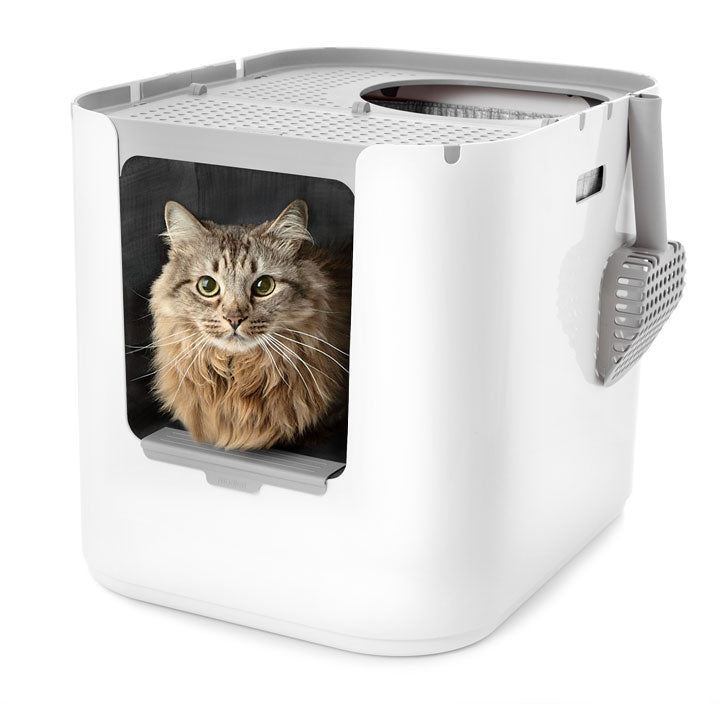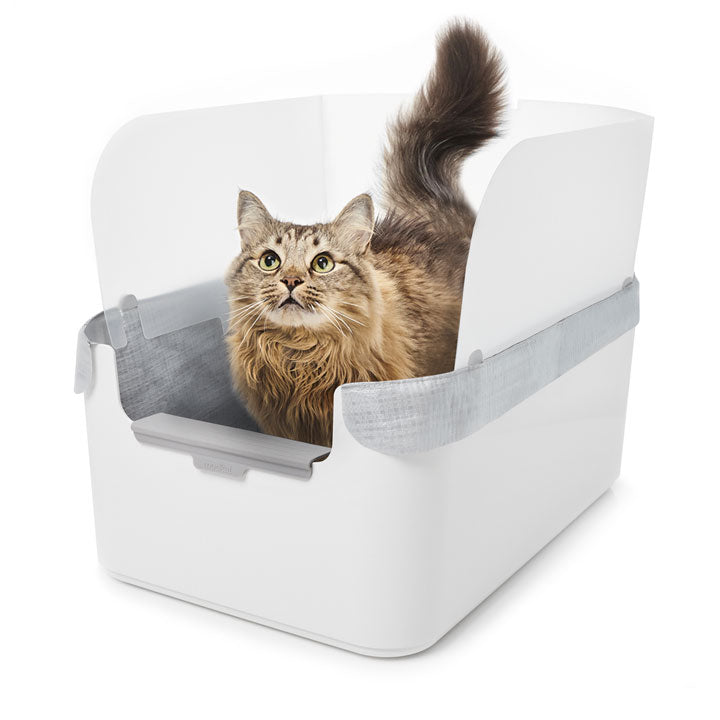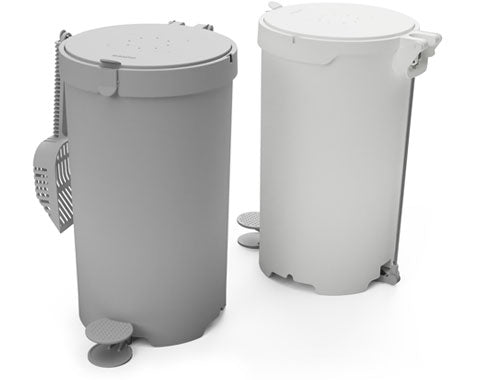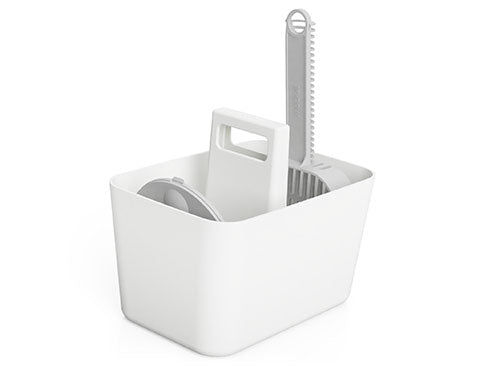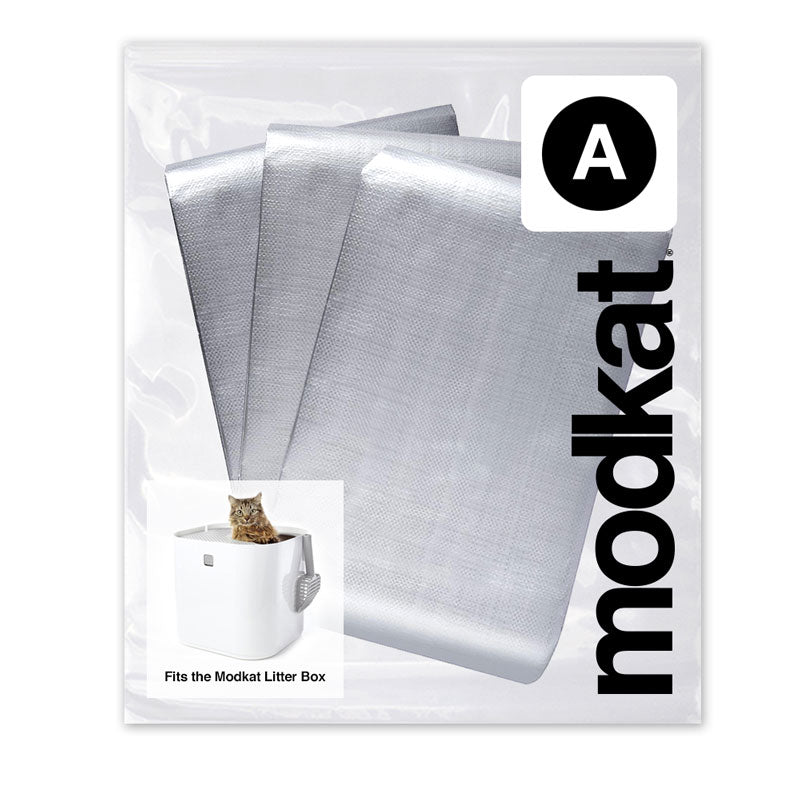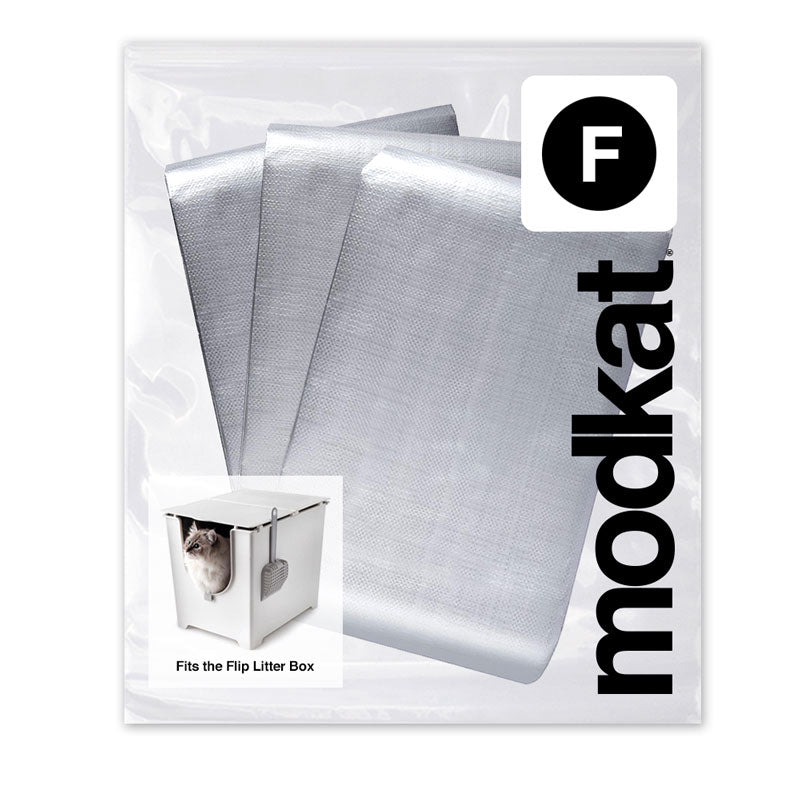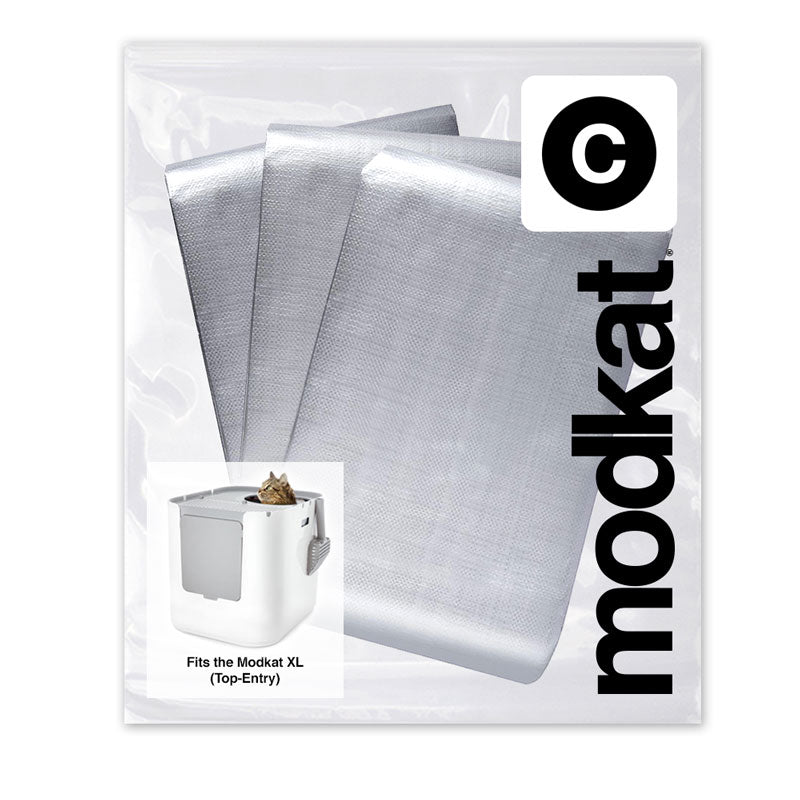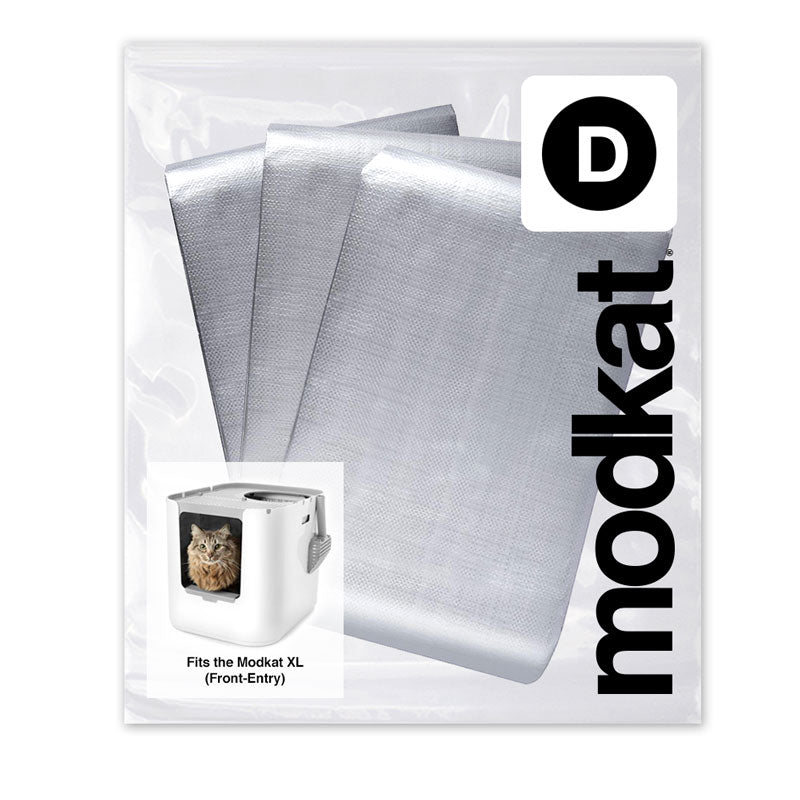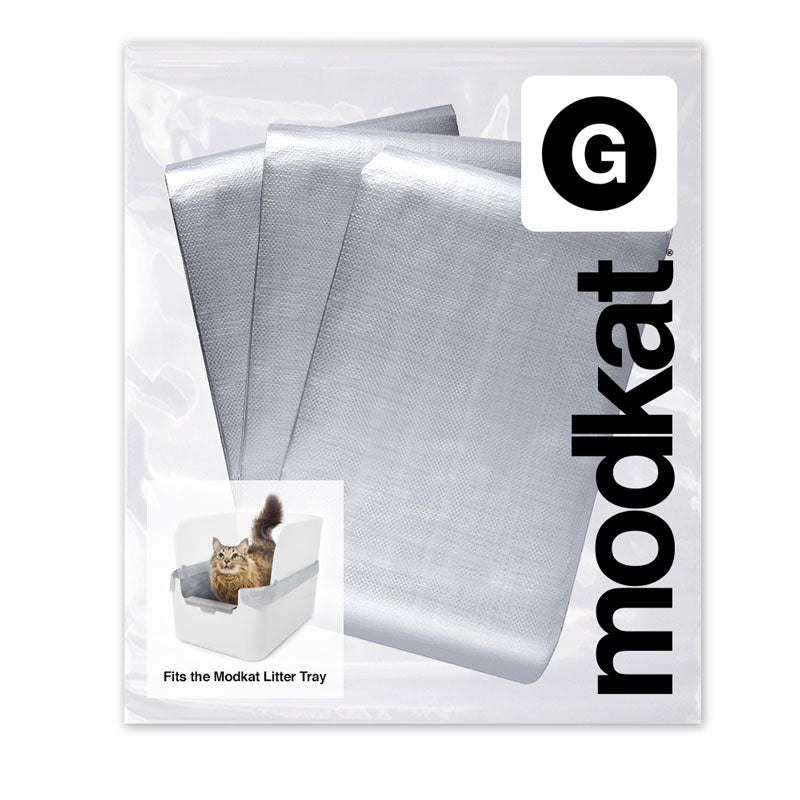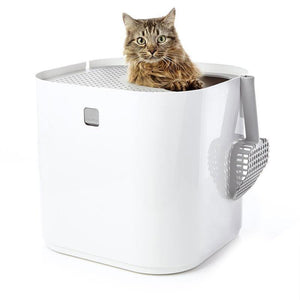Litter Boxes
Accessories
Liners
7 Reasons why your cat could be having accidents.

Life with your cat was going great until one day you discovered cat feces or a puddle of urine in a spot not approved for use by your four-legged companion. Now you’re not only annoyed but you’re frustrated too!
Your cat is not deliberately causing trouble. There's a reason he has forsaken his litter box to eliminate in inappropriate places in your house. This behavior is not all that uncommon in house cats, and unfortunately, it becomes the main reason some cat parents throw in the towel on their kitties. But it also is an issue that can be addressed and corrected once you determine what’s causing your cat to misbehave.
Here are 7 reasons why your cat could be having accidents in the house:
1. Medical issues – There are several medical conditions that could interfere with a cat’s normal elimination and lead to urinating and defecating outside the litter box. Among them are inflammation of the urinary tract, kidney and thyroid diseases, diabetes, and age-related illnesses. A trip to the vet will rule out a medical condition. It’s a good place to start.
If your cat is experiencing painful urination or bowel issues, he might associate the pain with eliminating in the litter box, which would explain why he chooses to go on the carpet just outside the box or even in the bathroom sink or bathtub.
2. Marking territory – You might find evidence of “puffs” of urine on vertical surfaces in your home such as the cat’s scratching post or the wall near the litter box. Typically, unneutered male cats will mark their territory with a “puff” or spray of urine. Some non-spayed females might also mark territory by squatting, and you’re likely to find marking in multi-cat households. To resolve this behavior, make sure to spay or neuter your animal.
3. Stressed out – Cats aren’t famous for adjusting well to change. A new move, a new baby, a new animal in the house, or a house guest can disrupt your kitty’s daily routine and cause her stress. There are medications that your vet can prescribe for stress, but other options that may be helpful are pheromone diffusers made by Feliway® or natural calming supplements.
4. Aversion to litter box location – Be sure the litter box is located in an area where your cat feels safe using it. Typically, cats prefer a quiet and private place to do their business, separate from where they dine and easy to access. If you have multiple cats, each will need their own “throne.”
Try relocating the litter box to a different area to see if your cat prefers another location, or place multiple litter boxes in various areas to determine if she has a preference. And remember, if you have a multi-level home and your cat has access to all areas, you’ll need a litter box on every floor of your house so she doesn’t have too far to go to eliminate.
5. Dirty litter box – Cats are naturally clean animals. You’ll find them grooming several times a day. So if the litter box is dirty, you can be certain your cat will avoid it. They are not keen on padding around in clumps of feces and urine. Be sure to scoop once a day or more often if you have multiple cats, and do a complete cleaning of the box and scooper and overturn the litter at least once a month.
6. Aversion to the litter itself – Did you change the type of litter you’d been using? Cats are finicky about the way litter feels on their paw pads and how it smells. So if you’ve changed brands and your cat is having accidents, the litter could be the culprit.
Cats prefer unscented litter because of their highly sensitive noses. We recommend a clumping, non-clay, natural litter, which works well with our reusable litter liners.
7. Dislikes the litter box – The right litter box will make all the difference in the world. If your cat shuns the current litter box, it might be because it just doesn’t fit her personality, her size, or her physical limitations. Choosing the right litter box for your cat will depend on several factors.
For example, kittens are clumsy and awkward. A kitten might be challenged to scale the sides of a litter box with tall walls. A larger cat, on the other hand, will need a box with higher walls or enclosed with a spacious interior. Senior cats or cats with disabilities may have physical limitations that warrant a litter box with an entrance at the front.
While accidents can happen, punishing your kitty won’t solve the problem. It will only cause your cat to dislike, distrust, or fear you. If your cat is already stressed, taking out your frustrations on her will only reap additional anxiety. Instead, focus on why it might be happening and work to solve the problem. Solicit help from your vet if need be so that you can once again live in harmony with your feline companion. 🐈
“It looks nicer than any other hooded or open option we considered.”

Purrr News.
Join our email list and get exclusive access to new products, the best cat litter box health articles, and 10% off your first order!
Similar products related to this blog:
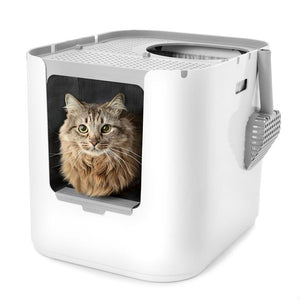
"It looks nicer than any other hooded or open option we considered."

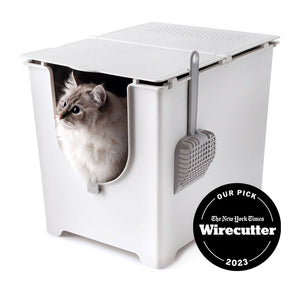
"This litter box keeps everything in, nothing gets out the sides."
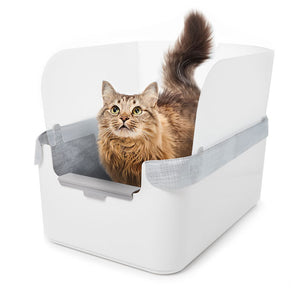
"My beautiful ragdoll cat and I both love the new Modkat Litter tray!"

